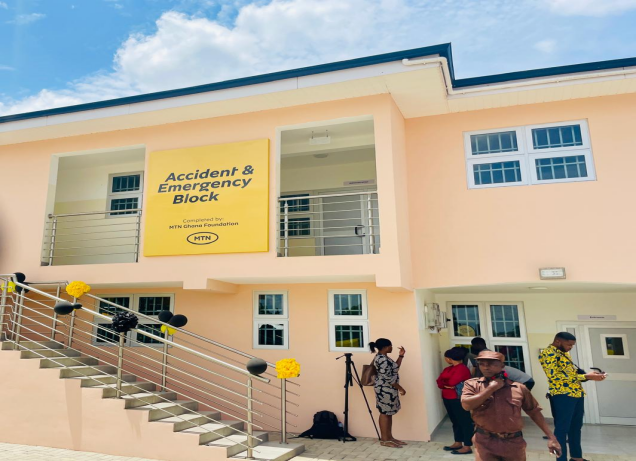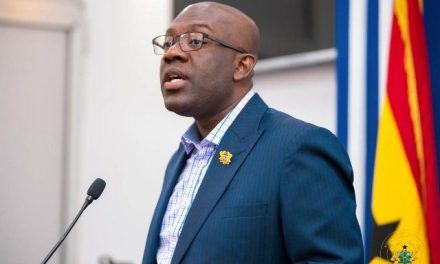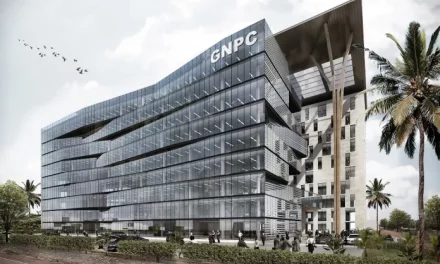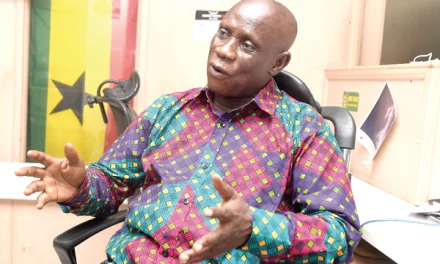
MTN Foundation Refurbishes Bawjiase Polyclinic At GH¢5.47m3 min read


The MTN Ghana Foundation has refurbished the Accident and Emergency Centre and an administrative block at the Bawjiase Polyclinic at a cost of GH¢5.47million, enhancing the existing facilities and benefitting the people of Bawjiase and surrounding communities.
This gesture underscores the MTN Foundation’s commitment to achieving World Health Organization (WHO) Universal Health Coverage in Ghana by 2030 and aligns with SDG 3: Good Health and Well-being.
The Bawjiase Polyclinic, a vital healthcare institution in the Central Region, serves Bawjiase and 80 other settlements in the Awutu Senya District and beyond, catering for approximately 33,000 people in the Central Region and a portion of the Greater Accra Region.
Despite providing essential services to the community, the polyclinic faces challenges such as limited infrastructure and financial constraints, as highlighted by MTN Ghana Foundation Board Chairman, Franklin Manu.
“It faces several challenges due to inadequate infrastructure and financial limitations. The previous facility had only 40 beds across seven wards, with the Emergency Ward being a single-room unit with only three beds.
“During times of overflow, the corridor is converted into an additional ward. Additionally, there is no operating theatre, and the office space for administrative staff is inadequate,” he stated.
“The completion of the Accident and Emergency Centre as well as the administration block will help to alleviate some of these challenges and bring much needed relief to the district. They will ensure that patients receive timely and quality care,” he added.
Mr. Manu described healthcare as a basic right which remains inaccessible to many, highlighting the necessity to rehabilitate and hand over the Bawjiase Policlinic.
“Quality healthcare is a fundamental right, yet it remains a dream for many in our country. Therefore, with a shared sense of purpose, the MTN Ghana Foundation and the management of the polyclinic embarked on a journey to transform the Bawjiase Polyclinic into a modern healthcare centre. After almost two years, we are here to hand over the Accident, Emergency and Administration Block, completed at the cost of GH¢5,475,542.69,” he noted.
The Accident and Emergency Centre and Administrative Block underwent extensive renovations, resulting in a new building that includes an operating theatre, an emergency ward, physicians’ offices, an isolation ward, a rehabilitation ward, a resuscitation point and quarters for nurses and doctors.
Additionally, there are a welcome area, offices for accounting staff, nurses, the medical superintendent and administrator, a conference room and a staff kitchenette. The facility is also equipped with medical equipment such as hydraulic patient stretchers, hospital beds, lights, bedside lockers, drip stands, medicine trolleys and cabinets, anaesthetic machines, diathermy machines, patient monitors, oxygen concentrators and surgical instruments.
Mr. Manu expressed the MTN Foundation’s satisfaction with its significant contributions to healthcare advancement in Ghana, citing the recent handover of a 60-bed maternity block to Keta Hospital in February. He also mentioned the ongoing process of handing over an Accident and Emergency Centre and Administrative Block to the Bawjiase Polyclinic.
Reiterating the importance of healthcare facility maintenance, he announced that the MTN Foundation and Bawjiase Polyclinic will develop a sustainability policy and encourage everyone to adhere to it.
“The provision of healthcare facilities is important, but equally crucial is the maintenance of such facilities. To ensure the sustainability of the facility, the MTN Foundation, in collaboration with the Polyclinic’s management, will establish a maintenance policy. We urge the management, staff and users to adhere to these policies to preserve the facility,” asserted Mr. Manu.
Mr. Manu concluded by underscoring the importance of prioritising road safety to prevent avoidable deaths and injuries. He highlighted that despite having proper facilities, prevention is always preferable to cure, and advised everyone to take necessary precautions to alleviate the burden on the healthcare system.


















